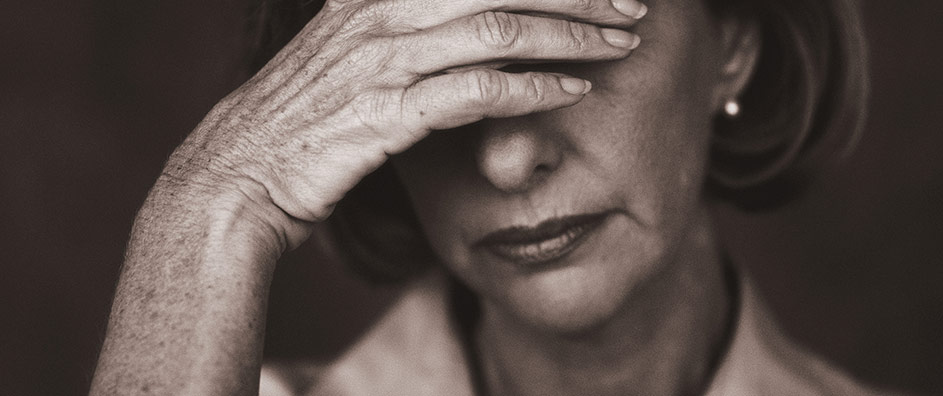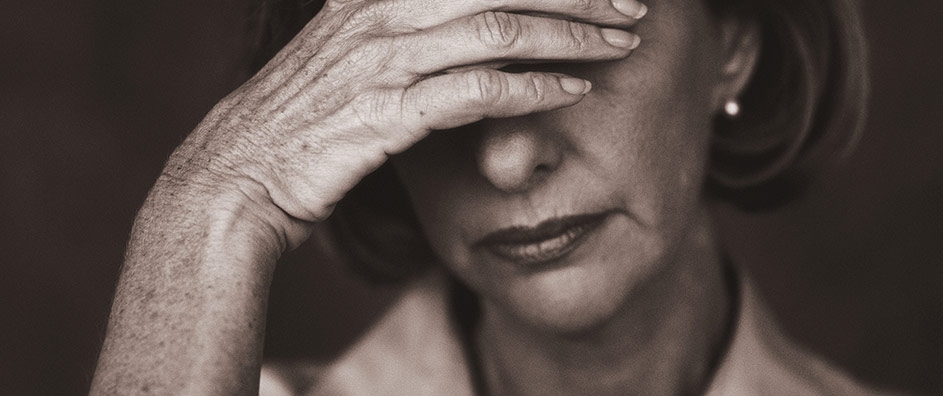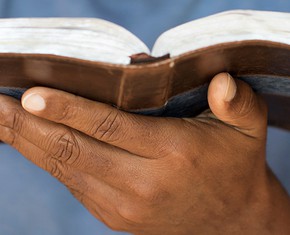The views expressed in our content reflect individual perspectives and do not represent the authoritative views of the Baha'i Faith.
 I spent the last 15 years of my professional life, until I retired, as a Hospice Social Worker — part of a team helping to provide comfort care for those people who had a terminal illness resulting in a life expectancy of six months or less.
I spent the last 15 years of my professional life, until I retired, as a Hospice Social Worker — part of a team helping to provide comfort care for those people who had a terminal illness resulting in a life expectancy of six months or less.
For these terminal patients, the negative side-effects of continued curative treatment far outweighed any benefits they could hope to obtain. As a result, I had the distinct privilege of spending many hours in meaningful conversation with people who knew their lives would soon end. Many people have asked how I managed to be around death and dying for so long. I can only say it was challenging, but it provided profound experiences that taught me the importance of how I choose to live my life.
I met wonderful, spiritual souls who approached death calmly and even with humor. Completely unafraid, they radiated the sense that their lives had created much credit in the world and that this would have meaning after they died. They knew they had approached their life’s work in service and sacrifice. Beyond the satisfaction they received from having taken good care of their families and those around them, they saw their material wealth and possessions as irrelevant. Those who loved them attended and mourned these beautiful deaths, but the mourners celebrated a life that had made a difference. In truth, people can and do die with a smile on their face, knowing of the spiritual existence that awaits them:
O SON OF SPIRIT!
With the joyful tidings of light I hail thee: rejoice! To the court of holiness I summon thee; abide therein that thou mayest live in peace for evermore. – Baha’u’llah, The Hidden Words, p. 11.
Of course, when death nears, not everyone has this level of certitude. I heard heart-wrenching regrets and self-recrimination from patients seeking forgiveness from God and from those they felt they had wronged.
We provided counseling for spiritual support and, when possible, our Hospice Team arranged for reunification with long-lost parents, siblings and children. When this happened it was often a very good day. I never heard any patient say “I should have been wealthier, owned more things, or risen higher on the corporate ladder.” But, I did hear “I ignored my children; I was dishonest and selfish; drugs and alcohol ruined my life; and I wish I had been closer to God.”
When patients obtained a sense of resolution and forgiveness, especially in relationship to God, we could palpably feel their relief. They still knew there was no time to remake their life, and that their debits far outweighed the credits. However, I had the sense that when they looked for God He was there for them, and they found peace.
O SON OF SPIRIT!
I created thee rich, why dost thou bring thyself down to poverty? Noble I made thee, wherewith dost thou abase thyself? …Turn thy sight unto thyself, that thou mayest find Me standing within thee, mighty, powerful and self-subsisting. – Baha’u’llah, The Hidden Words, pp. 6-7.
Finally, we witnessed those sad and exhausting deaths of isolated and raging souls who believed in nothing but themselves, and had labored only for their own benefit without any consideration for others. They usually had no interest in forgiveness, reconciliation or resolution. If any family was present, they directed their energy to determining their inheritance and making sure they got it. The debit of this kind of life leaves a lot of collateral damage, and my time was often spent counseling those who had suffered lifetimes of hurt and anger as a result.

O SON OF BEING! Bring thyself to account each day ere thou are summoned to a reckoning; for death, unheralded, shall come upon thee and thou shalt be called to give account for thy deeds. – Baha’u’llah, The Hidden Words, p. 11.
From all of these experiences I gratefully learned that one single life can be a credit or a debit, a source of great good or great pain.
I also learned that at the end each of us, including me, will add up our debits and credits. These words inspire and remind me:
Soon will our handful of days, our vanishing life, be gone, and we shall pass, empty-handed, into the hollow that is dug for those who speak no more; wherefore must we bind our hearts to the manifest Beauty, and cling to the lifeline that faileth never. We must gird ourselves for service, kindle love’s flame, and burn away in its heat. – Selections From the Writings of Abdu’l-Baha, p. 267.
You May Also Like
Comments

















This is Jon ( J-0n! )
I like this deepening article with several application of metaphors that brings abstract to concrete inspirational understanding.
Credits are the deeds and debits are the one we owe. And the ending is the balance. Many insight can be be expanded to bring inspired readership to check their balance daily as accounting of deeds. Be!
And it is!
.
Do I have to put more (300) words as characteristic that is remaining for the this posting. I can but let me take a break.